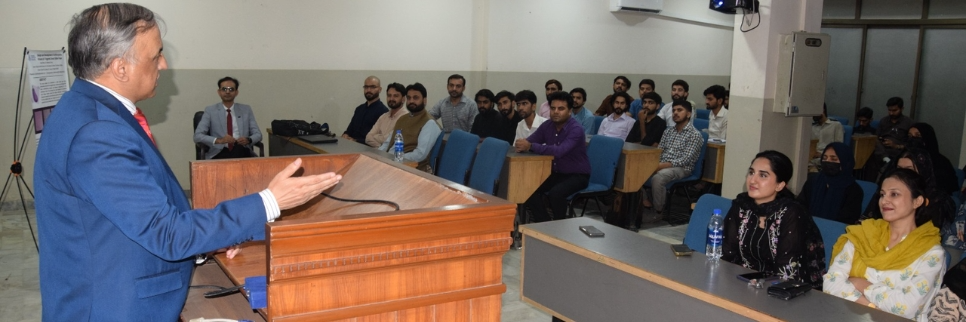Punjab Govt Announces New Changes to Class 9 and 11 Syllabus

- September 10, 2024
- 3823
The Punjab government has proposed significant modifications to the curriculum for pupils in Classes 9 and 11, which will take effect in the upcoming academic year, in an important effort to modernize education.
In particular in Islamiat and Social Studies, the new curriculum attempts to stress Pakistan's cultural and historical significance while still meeting current academic requirements and changing student demands.
The changes aim to give province-wide pupils a more relevant and contemporary educational experience.
Subjects to Get Revised Curriculum
The Punjab Curriculum and Textbook Board (PCTB) recently announced that these modifications will include updates to important topics like:
- Urdu
- English
- Physics
- Chemistry
- Biology
- Computer Science
- Mathematics
The Punjab Curriculum and Textbook Board (PCTB) will produce new textbooks to accompany the altered curriculum; they should be available prior to the start of the upcoming academic year.
For both teachers and students, this will guarantee an effortless transition.
The modifications are intended to bring the syllabus more into line with contemporary trends in education and local demands. The new textbooks should arrive for teachers and students prior to the commencement of the school year.
The updated curriculum will improve knowledge of Pakistani history and culture and offer a more thorough educational experience.
Punjab Textbook Board History
The Punjab Textbook Board began working on textbook development in the late 1960s, and by 1970, it had produced 17 different textbooks.
The Punjab Textbook Committee, which was established in 1877, was replaced by the current Textbook Board.
After the state's monopoly on the textbook market was ended in 1877, the private sector began to receive contracts for book publication 20 years later.
The disorderly status of the textbook market during this time received criticism from a 1938 Committee of Inquiry, which suggested that, in opposition to the unbridled rivalry that prevailed in this field, there should only be twelve sets of books on the approved list in each topic.








